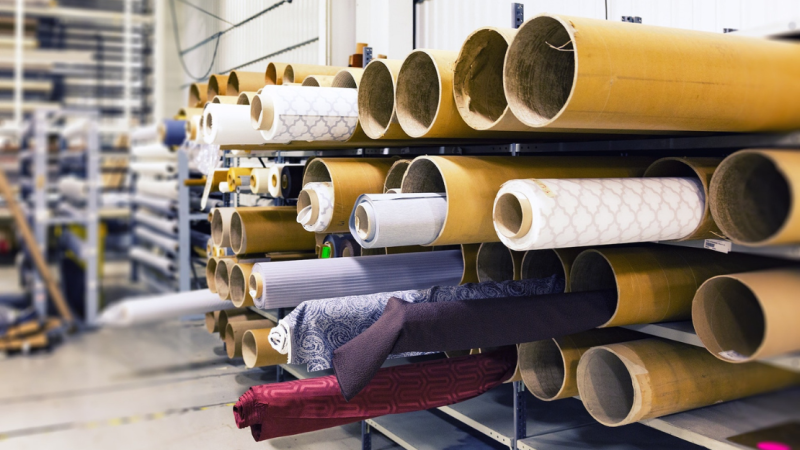8 Factors to Consider to Identify Reliable Supply or Manufacturer Companies

Categories :
Are you trying to find reliable suppliers to work with? If so, then you are in the right place. Access to high-quality supplies can save you money and ensure better results for your production process--increasing customer satisfaction. But how do you determine which suppliers and manufacturers offer goods of a high enough standard? There is no foolproof method, but there are some key things that should be taken into account before making such an important decision. Here are 8 factors to consider when identifying reliable suppliers and manufacturers.
1. Quality
Quality is probably the most important factor to consider when selecting a supplier. Check on the quality of their products and services, as well as their customer reviews. Make sure that they are compliant with industry standards and regulations. According to https://www.daepumps.com/products/gear-pumps/, when selecting a pump supplier, you should look for quality materials used in manufacturing and well-crafted designs that pass all product tests. It's also a good idea to make sure they are ISO 9001 certified, which indicates that their products and processes meet international standards. While cost is often an important factor, remember that you get what you pay for.
2. Delivery Speed
In today’s competitive market, delivery speed is an important factor to consider when sourcing a reliable supplier or manufacturer. Does the company have a track record of delivering on time? Do they offer rush orders if needed? Be sure to check how long it takes them to fill and ship orders, and that they can meet your team's turnaround times. You should also look at the cost involved with different shipping speeds. If you're not satisfied with their delivery speed, you might want to explore other options. Working with a reliable supplier or manufacturer who understands what you need and consistently delivers is essential for maintaining customer satisfaction.
3. Price Point
The cost of the product is a key factor when determining the reliability of a supply or manufacturer company. It's important to compare prices between companies and make sure that you understand how their pricing works. For example, some companies may offer discounts for bulk orders, while others may charge higher prices in exchange for better-quality goods. Also, be aware of hidden fees such as shipping costs and taxes. By doing your due diligence and researching the price points of different manufacturers or suppliers, you can ensure you're getting a fair deal while also protecting yourself from getting ripped off.
4. Availability
It's important to make sure the supplier or manufacturer you choose is reliable in terms of availability. If there are any disruptions in their supply chain, it could lead to stock shortages and production delays, leading to customer dissatisfaction. You should ask about their delivery and inventory systems so that you have an understanding of how they manage their stock levels. It's also a good idea to understand what happens if they can't fulfill your order due to a lack of available supplies. This will help you prepare for any potential issues that may arise.
5. Customer Service and Support
The customer service and support offered by the company should be a major factor when deciding which supplier to use. It’s important to consider how well they respond to inquiries and complaints, as this will give you an indication of their commitment to quality customer service. Do they offer warranties or guarantees? Are their staff knowledgeable about the products they are selling? What level of after-sale services do they provide? Make sure that any supplier you choose is able to meet your needs in terms of customer support before making your final decision.
6. Reputation and Credibility
A company’s reputation and credibility are a reflection of the quality of its products and services. Do your research to make sure that the company has received positive reviews from customers, suppliers, or even industry experts. Check for references or third-party certifications that verify their reliability and trustworthiness. Additionally, look into the company’s record of customer service. Find out if they are responsive to customer needs and inquiries. All these factors will help you make an informed decision when choosing a reliable supplier. It's also a good idea to check out their website and social media profiles to get a better understanding of the company.
7. Business Processes
When considering a potential supplier, it’s important to look at their business processes. Do they have systems in place to ensure quality control? Are they able to scale up or down with ease depending on the order size? Have they put safeguards and measures in place to prevent disruption of supply chains? These are all important considerations when looking for reliable manufacturers. Good communication is also essential – can the manufacturer be easily contacted if there are any questions or issues that need addressing? Having an efficient and transparent process from start to finish will help both parties get the most out of their relationship.
8. Financial Stability
Financial stability is a critical factor to consider, as it will affect the supplier’s ability to deliver on its promise. The supplier should have adequate assets and be able to pay its bills in a timely manner. It would also be prudent to check their credit rating, ask for financial statements and look for any financial anomalies or red flags that could indicate potential issues in the future. Additionally, evaluating the company’s past performance can offer insight into how reliable they are likely to be going forward. Taking the time to understand a manufacturer or supply company’s financial position helps ensure your investments are safe and secure so you can rest assured knowing you’re dealing with trustworthy partners who can help further the success of your business.









